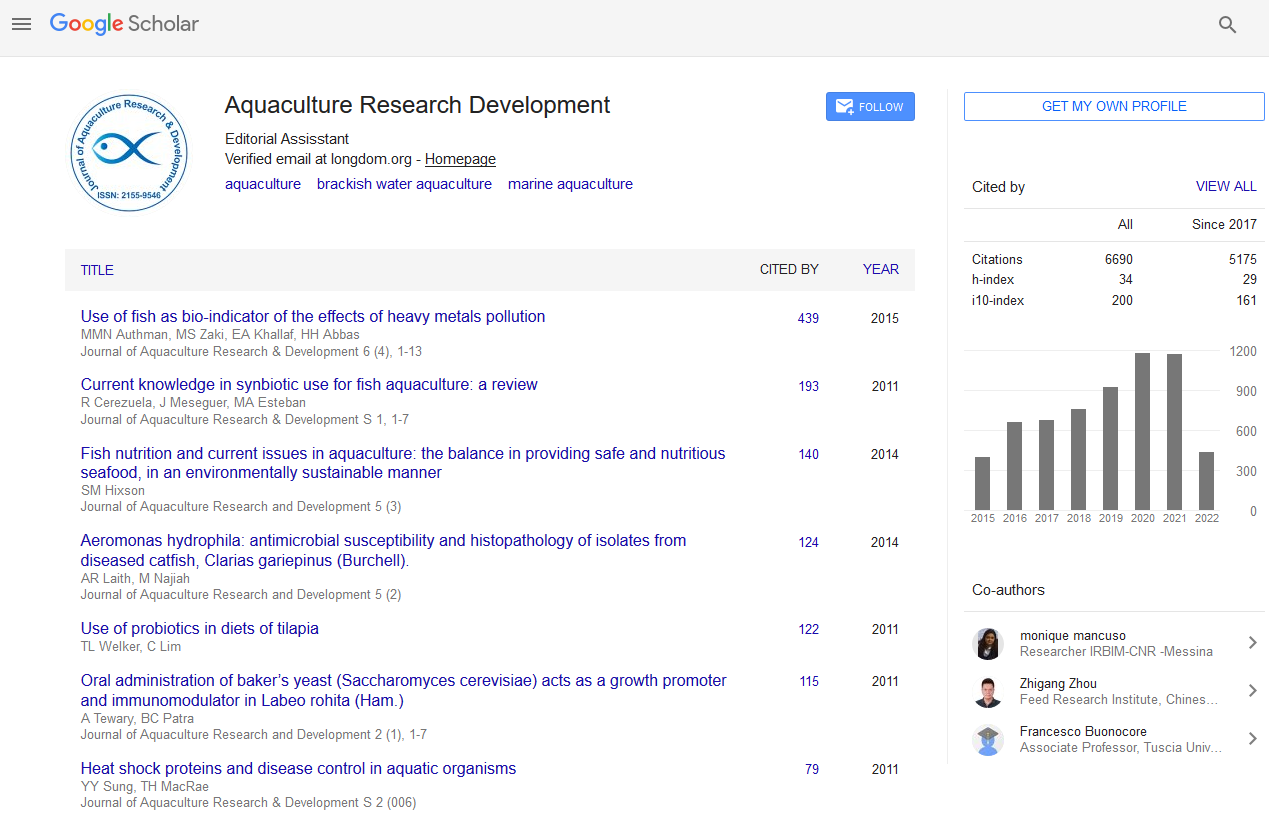PMC/PubMed Indexed Articles
Indexed In
- Online Access to Research in the Environment (OARE)
- Open J Gate
- Genamics JournalSeek
- JournalTOCs
- Scimago
- Ulrich's Periodicals Directory
- Access to Global Online Research in Agriculture (AGORA)
- Electronic Journals Library
- Centre for Agriculture and Biosciences International (CABI)
- RefSeek
- Directory of Research Journal Indexing (DRJI)
- Hamdard University
- EBSCO A-Z
- OCLC- WorldCat
- Scholarsteer
- SWB online catalog
- Virtual Library of Biology (vifabio)
- Publons
- MIAR
- University Grants Commission
- Euro Pub
- Google Scholar
Useful Links
Share This Page
Journal Flyer

Open Access Journals
- Agri and Aquaculture
- Biochemistry
- Bioinformatics & Systems Biology
- Business & Management
- Chemistry
- Clinical Sciences
- Engineering
- Food & Nutrition
- General Science
- Genetics & Molecular Biology
- Immunology & Microbiology
- Medical Sciences
- Neuroscience & Psychology
- Nursing & Health Care
- Pharmaceutical Sciences
Abstract
Effects of Dietary Zinc Amino Acid Complex and Zinc Sulfate on Growth Performance, Digestive Enzyme Activity and Immune Response in Asian Seabass (Lates calcarifer)
Kanokwan Sansuwan, El-Orapint Jintasataporn* and Srinoy Chumkam
Zinc is an essential trace mineral to fish and vital to various biological processes and function. The artificial diets offered to intensively cultivated fish must possess the zinc content required by the animal metabolism for health maintenance and high weight gain. However, essential elements must also be in an available form to be utilized by the organism. Thus, this study was designed to evaluate the effects of different zinc forms, including organic zinc (zinc amino acid complex) and inorganic zinc (zinc sulfate) as feed additives in diets on in vitro protein digestibility, growth performance, feed utilization, digestive enzyme activity, immune response and muscle quality of Asian seabass (Lates calcarifer). The study was assigned in CRD with 3 treatments and 3 replicates. Three groups of fish with mean weight 22.54 ± 0.80 g, were given a basal diet either unsupplemented (control) or supplemented with 50 mg Zn kg-1, as zinc sulfate (ZnSO4) or zinc amino acid complex (ZnAA). The fish were fed experimental diets 3.0% of their body weight per day, twice daily at 08.00 and 16.00 h, for 10 weeks. At the end of the experiment, no significant differences were observed on protein digestibility, survival, growth performance and feed utilization across the three dietary treatments (P>0.05). Fish fed ZnSO4 diets exhibited a significant increase in the specific activities of total protease, pepsin and trypsin compared with ZnAA and the control (P<0.05). Hematocrit, lysozyme and superoxide dismutase activities of fish fed ZnAA diets were significantly higher compared with all other groups (P<0.05). However, no significant differences were observed for muscle quality and whole body composition (P>0.05). The results of the present work allowed us to conclude that there was no difference in the growth between the two zinc sources but ZnAA supplementation exhibited a higher immunity response in Asian seabass.
Published Date: 2019-08-30; Received Date: 2019-07-04


